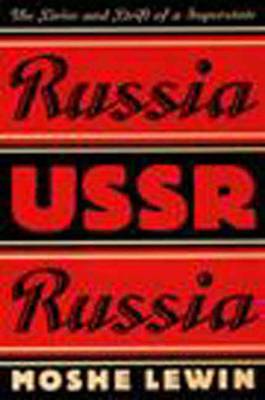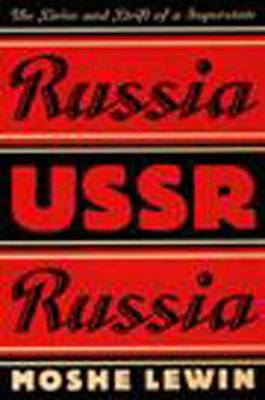
- Retrait gratuit dans votre magasin Club
- 7.000.000 titres dans notre catalogue
- Payer en toute sécurité
- Toujours un magasin près de chez vous
- Retrait gratuit dans votre magasin Club
- 7.000.0000 titres dans notre catalogue
- Payer en toute sécurité
- Toujours un magasin près de chez vous
Description
Moshe Lewin's major new book is an original and important work that clarifies the sweeping changes that transformed Russia in the twentieth century from a muzhik country to the urban power we read about today. As in his previous works, Moshe Lewin's extraordinary breadth of knowledge and sympathy allows him to deal with the "grand narrative of cultural transformation" that goes well beyond simple studies of urban growth or industrialization.
The Soviet Union, as Lewin reminds us, was a rural country well into the post-World War II era, becoming predominantly urban only in the mid-1960s. The fascinating story that emerges from this book is one of a country that is becoming increasingly more complex even as it retains a "relatively primitive configuration of power."
Professor Lewin goes on to show the historical roots of recent change. In the 1920s it was the government that was impatient to change, while society was transforming itself slowly. Recent years have seen a reversal of this situation, where a largely bureaucratic state simply lost its ability to govern a rapidly changing society. Professor Lewin's analysis lays bare the underlying causes behind the present chaos in the former Soviet Union, where a government that barely understands the new forces that have been so dramatically unleashed finds itself totally unable to control them.
Spécifications
Parties prenantes
- Auteur(s) :
- Editeur:
Contenu
- Nombre de pages :
- 384
- Langue:
- Anglais
Caractéristiques
- EAN:
- 9781565841239
- Date de parution :
- 01-02-95
- Format:
- Livre relié
- Format numérique:
- Genaaid
- Dimensions :
- 165 mm x 244 mm
- Poids :
- 671 g

Les avis
Nous publions uniquement les avis qui respectent les conditions requises. Consultez nos conditions pour les avis.






